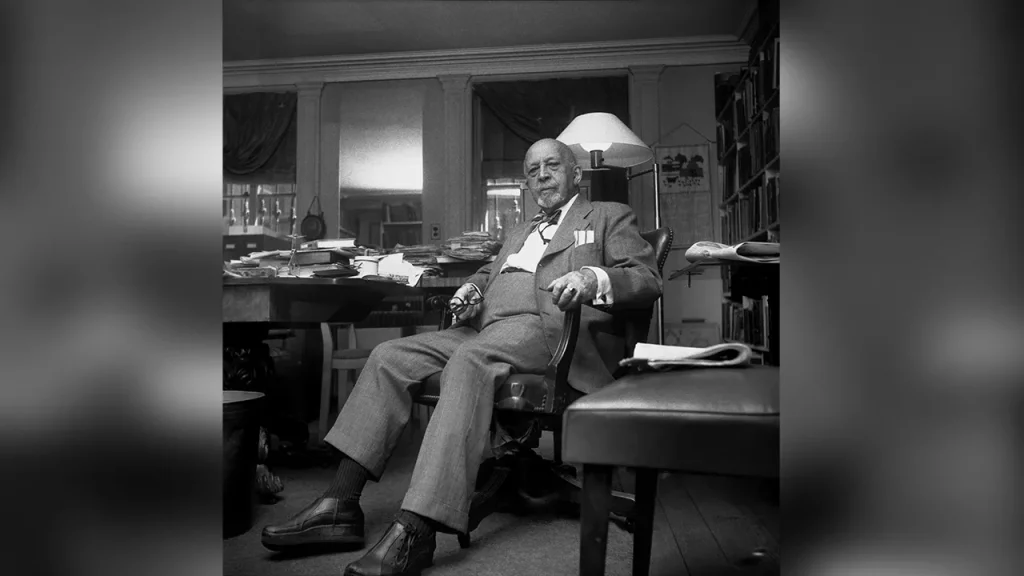W.E.B. Du Bois, an American sociologist, author, activist, and co-founder of the NAACP, passed away on August 27, 1963, in Accra, Ghana at the age of 95. He was an influential civil rights leader during the first half of the 20th century. Du Bois was born William Edward Burghardt Du Bois in Great Barrington, Massachusetts to Mary Silvina Burghardt and Alfred Du Bois. His father, a Union army soldier, deserted the family shortly after Du Bois’ birth, leaving him to be raised by his mother and extended family. Despite these challenges, Du Bois received a college preparatory education in a racially integrated high school and went on to graduate from Harvard University in 1890.
In 1888, Du Bois enrolled at Harvard University, becoming the first African American to earn a PhD from the prestigious institution. He was a key figure in the founding of the NAACP in 1909 and served as the editor of its magazine, The Crisis, from 1910 to 1934. Du Bois was known for his activism and outspoken views on racial equality, often opposing the ideas of other prominent African American leaders of his time, such as Booker T. Washington. His collection of essays, “The Souls of Black Folk,” published in 1903, is considered a landmark of African American literature.
Throughout his career, Du Bois conducted groundbreaking sociological research, including a study of Philadelphia’s Seventh Ward that was published as “The Philadelphia Negro” in 1899. He used statistical methods and extensive fieldwork to gather information, pioneering the use of data in sociology. In his later years, Du Bois relocated to Ghana and worked on an encyclopedia of the African diaspora, funded by the Ghanaian government. He became a citizen of Ghana in 1961 and passed away in the country on the eve of the historic March on Washington for Jobs and Freedom in 1963.
Du Bois’ legacy continues to inspire and influence civil rights activism today. The NAACP, which he helped establish, remains committed to eliminating racial discrimination and advancing the rights guaranteed by the United States Constitution. Du Bois’ contributions to African American literature, sociology, and activism have had a lasting impact on American society. His unwavering dedication to social justice and equality for all people serves as a reminder of the ongoing struggle for civil rights and the importance of challenging injustice wherever it is found.
In conclusion, W.E.B. Du Bois was a pioneering figure in the fight for civil rights and racial equality in the United States. His work as a sociologist, author, and activist left a lasting legacy that continues to inspire generations of activists and scholars. Du Bois’ commitment to justice and equality, as well as his groundbreaking research and writing, have cemented his place in American history as one of the most important leaders of the civil rights movement. His contributions to the NAACP and his powerful voice in advocating for social change have had a profound impact on the struggle for racial justice in the United States and beyond.


